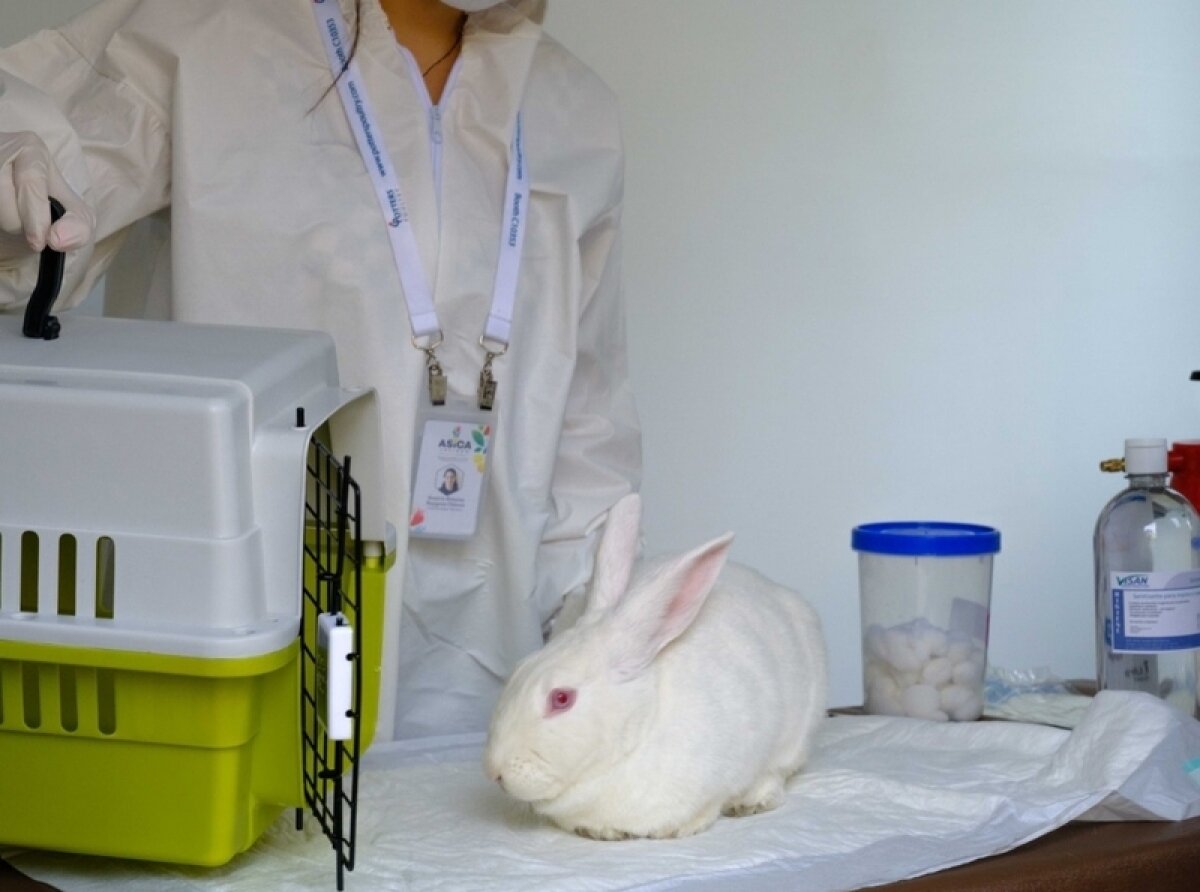The state Agrifood Health, Safety, and Quality Agency maintains a campaign in collaboration with Senasica.
After its formation a year ago, the state Agrifood Health, Safety and Quality Agency (ASICA Jalisco) maintains working with producers from different chains, as well as the continuous supervision of rehabilitated farms, and workshops on the proper handling of meat.
In addition, it has recently joined its action against the outbreak of the EHVC-T2 viral hemorrhage that occurred in the country affecting rabbits, coordinating with the federation through a national vaccination campaign.
This disease is of great impact, since it has lethal consequences for rabbits, said the director of ASICA Jalisco, Edgar Pulido Chávez. He specified that vaccinations have been carried out, both in a module installed in the Vallarta Norte neighborhood at the home of the agency, and through a mobile brigade that attends to the requests of interested producers.
He explained that a free vaccination program was implemented for commercial production units, coordinated by staff from the Mexico States Commission for the Prevention of Foot-and-Mouth Disease and Other Exotic Diseases, in coordination with personnel from the National Service for Food and Agriculture Health and Safety for the state, as well as ASICA with a team of four veterinarians to meet the demand for vaccination, mainly in the peripheral area of a 10-kilometer radius correlated to the reported foci.
Recently, the Federation of Zootechnical Veterinary Doctors, in coordination with Senasica, also joined the vaccination campaign for rabbits to face the outbreak of the vital hemorrhage EHVC-T2.
ASICA Jalisco received authorization from the FedMVZ as a vaccination module on April 19, 2021 and began the campaign on the 26th of the same month, where - as in other cities in the country - pet rabbits are vaccinated free of charge, for which their owners must go to any of the enabled modules.
The vaccination points are located in the veterinary clinics and hospitals that responded to the call of the FedMVZ, and will apply the vaccine designed by the federation technicians.
Faced with this pathology, the technicians of Senasica and the National Veterinary Biological Production Company combined their knowledge and skills to design this vaccine and put it at the service of producers and owners of rabbits in Mexico.
The CPA has reported that this disease is new, as it was detected for the first time in France in 2010, it is currently found in half of the states of our national territory.
Until next May 31, the ASICA Jalisco rabbit vaccination module will be open, in Tapalpa # 40, Colonia Vallarta Poniente, Guadalajara, Jalisco. To schedule an appointment or request more reports, you must call 332 976 8090.
In addition, it is requested to transport the rabbits in an adequate and well ventilated manner. Bring a sheet, blanket, newspaper, towel, anything that helps your bunny not slip on the table, and only one person can go at a a time and wearing their mask, to avoid crowds.
ASICA Jalisco staff report that no special care should be given after vaccination, however, the rabbit may present some normal symptoms derived from the vaccine, such as increased temperature, lethargy with a duration of up to four days, and diarrhea may rarely occur.
The biological is provided by Senasica and Pronabive, so until May 31st it has no cost for the population, and the veterinarian will not charge for the application. The only input that is borne by the user is to carry a syringe of one to three milliliters for each rabbit to be vaccinated.
In Mexico, the first case in rabbits was reported in Nueva Casas Grande, Chihuahua on April 3, 2020, while in Jalisco it was reported on February 17, 2021.
On February 26, 2021, the alert that activates and operates the National Emergency Device for the control and, where appropriate, the eradication of the EHVC was issued in the Official Gazette.
In the farms established in Jalisco, mostly in the Central Region, there is an estimated inventory of 8,000 breeders including 720 commercial producers, in addition to backyard bunnies.

